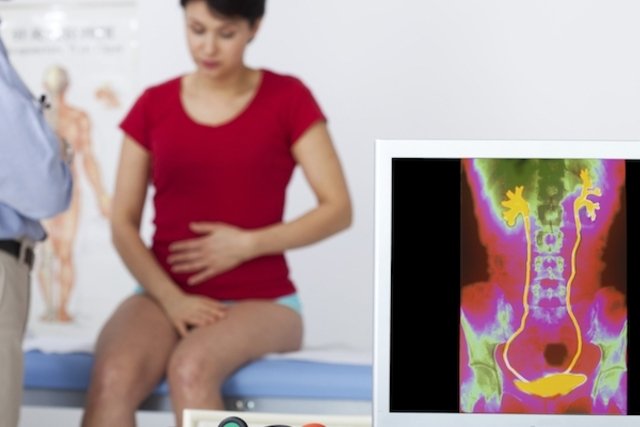The main symptoms of cystitis are pain and burning when urinating, frequent urge to urinate, very dark urine with an intense smell, pain in the bottom of the belly and a feeling of general malaise, which can occur in both men and women.
In the presence of signs and symptoms of cystitis, it is important that a urologist is consulted so that tests can be carried out to help confirm the infection and identify the bacteria responsible, and a type I urine test and urine culture are normally recommended. See more about cystitis.
After confirming cystitis, the doctor may recommend the most appropriate treatment, which usually involves the use of antibiotics. Watch the following video on how to identify the symptoms of cystitis:
Cystitis symptoms
The main symptoms of cystitis are:
- Frequent urge to urinate, but little urine volume;
- Pain or burning when urinating;
- Presence of blood in the urine;
- Dark, cloudy urine with a very intense smell;
- Pain in the lower abdomen or feeling of heaviness;
- General malaise or weakness.
Furthermore, in adults, although a fever may appear, it is normally no higher than 38º C, however when there is a high fever or back pain, it may indicate that the kidneys have been compromised.
In children, cystitis can be very difficult to identify because they are very vague and the child has difficulty explaining what they feel. However, some signs that may indicate this problem include peeing your pants during the day, having a fever above 38º C, feeling very tired or being more irritable, for example.
Online symptom test
To assess your risk of bladder infection, select the symptoms shown in the following test:
The symptom test is a tool that only serves as a complement and does not replace consultation with a doctor.
How the diagnosis is made
The initial diagnosis of cystitis should be made by a urologist or gynecologist, through evaluation of the symptoms presented. To complete the diagnosis, the doctor may also request a urine test, also called EAS, to analyze the characteristics of the urine, as well as identify whether there are signs of infection.
In addition, the doctor may also recommend a urine culture test to check the bacteria responsible for the infection, followed by a urine culture to identify the best antimicrobial for treatment. Understand how urine culture is performed with an antibiogram.
Taking care of your health has never been easier!
In addition to urine tests, the doctor may recommend an ultrasound of the bladder to check for signs of inflammation in the bladder, in addition to evaluating family and individual history so that the most appropriate treatment can be indicated. See how cystitis is treated.
Possible causes
In most cases, cystitis is caused by a bacterial infection in the bladder, most often Escherichia coliwhich is naturally present in the urinary and digestive system, but can reach the bladder and lead to the signs and symptoms of cystitis.
Furthermore, cystitis can arise as a consequence of situations that favor the proliferation of microorganisms, such as the use of some medications, menopause, injuries caused during sexual intercourse or as a consequence of the use of a bladder catheter and frequent use of intimate soaps, as they cause pH imbalance in the genital region, favoring the occurrence of infections.
Depending on the cause, treatment must be adapted and, therefore, whenever symptoms appear, it is recommended to consult a doctor to confirm the cause of the problem and begin appropriate treatment. See more about the causes of cystitis.

Sign up for our newsletter and stay up to date with exclusive news
that can transform your routine!
Warning: Undefined array key "title" in /home/storelat/public_html/wp-content/plugins/link-whisper-premium/templates/frontend/related-posts.php on line 12
Warning: Undefined array key "title_tag" in /home/storelat/public_html/wp-content/plugins/link-whisper-premium/templates/frontend/related-posts.php on line 13





